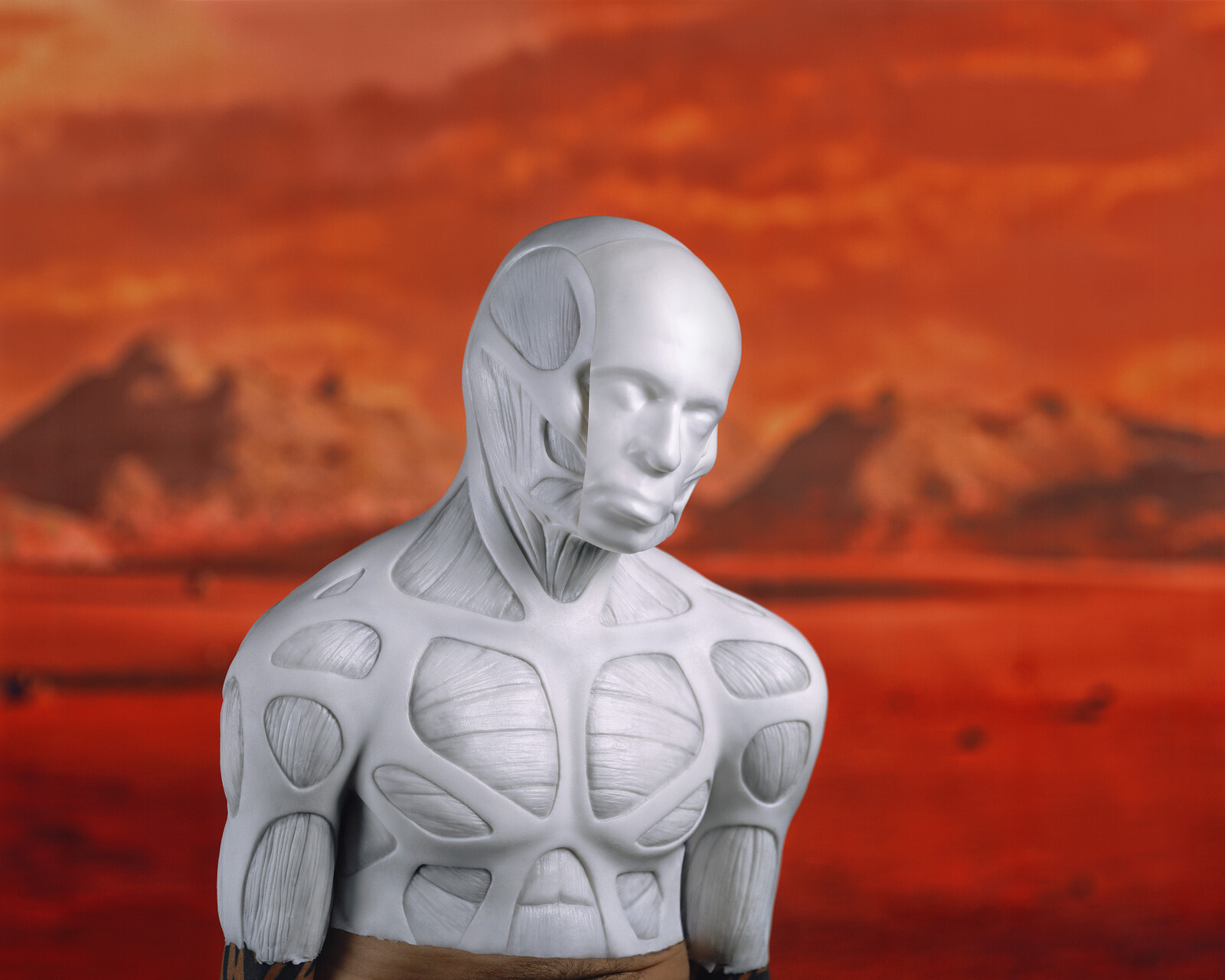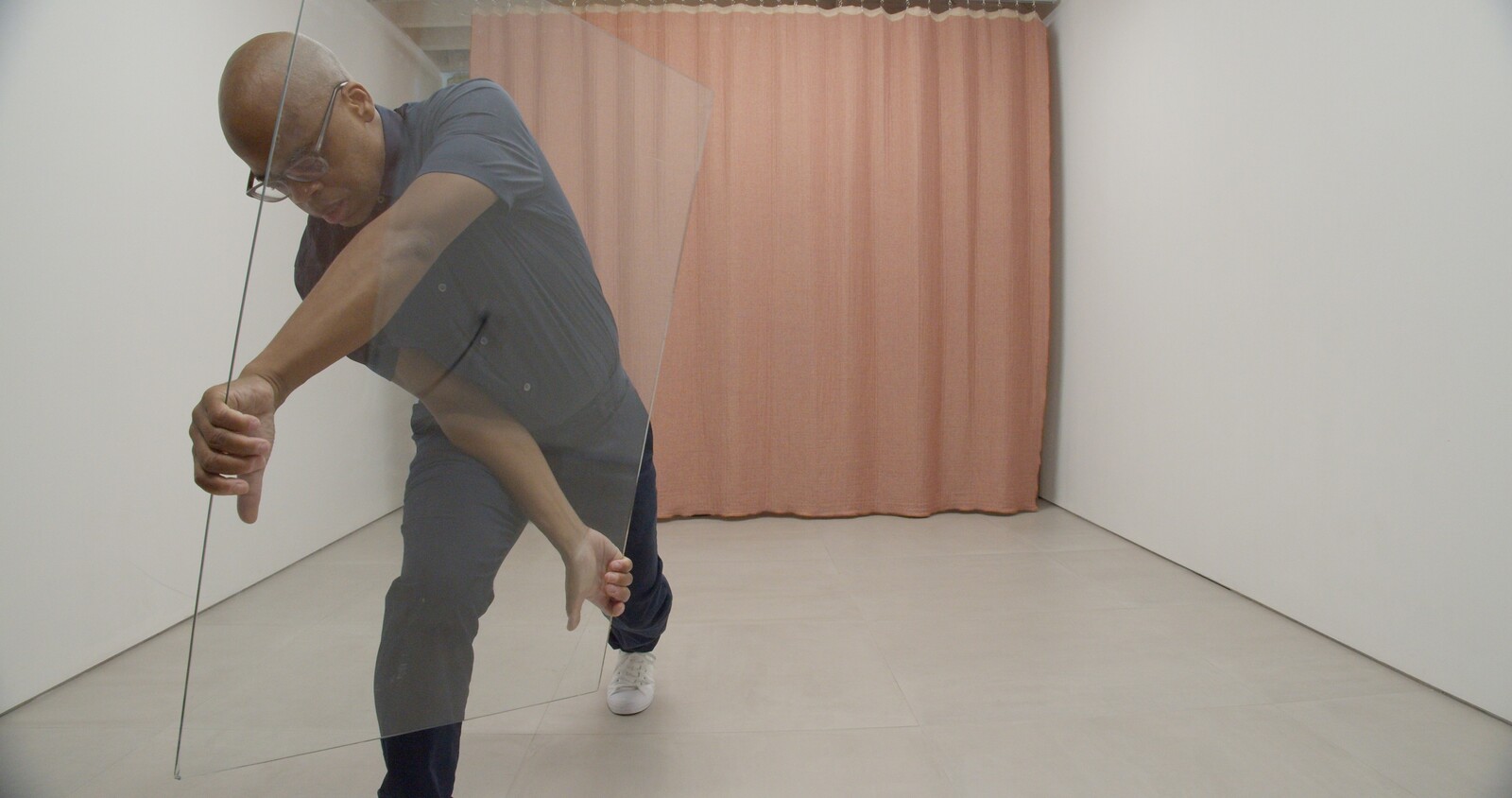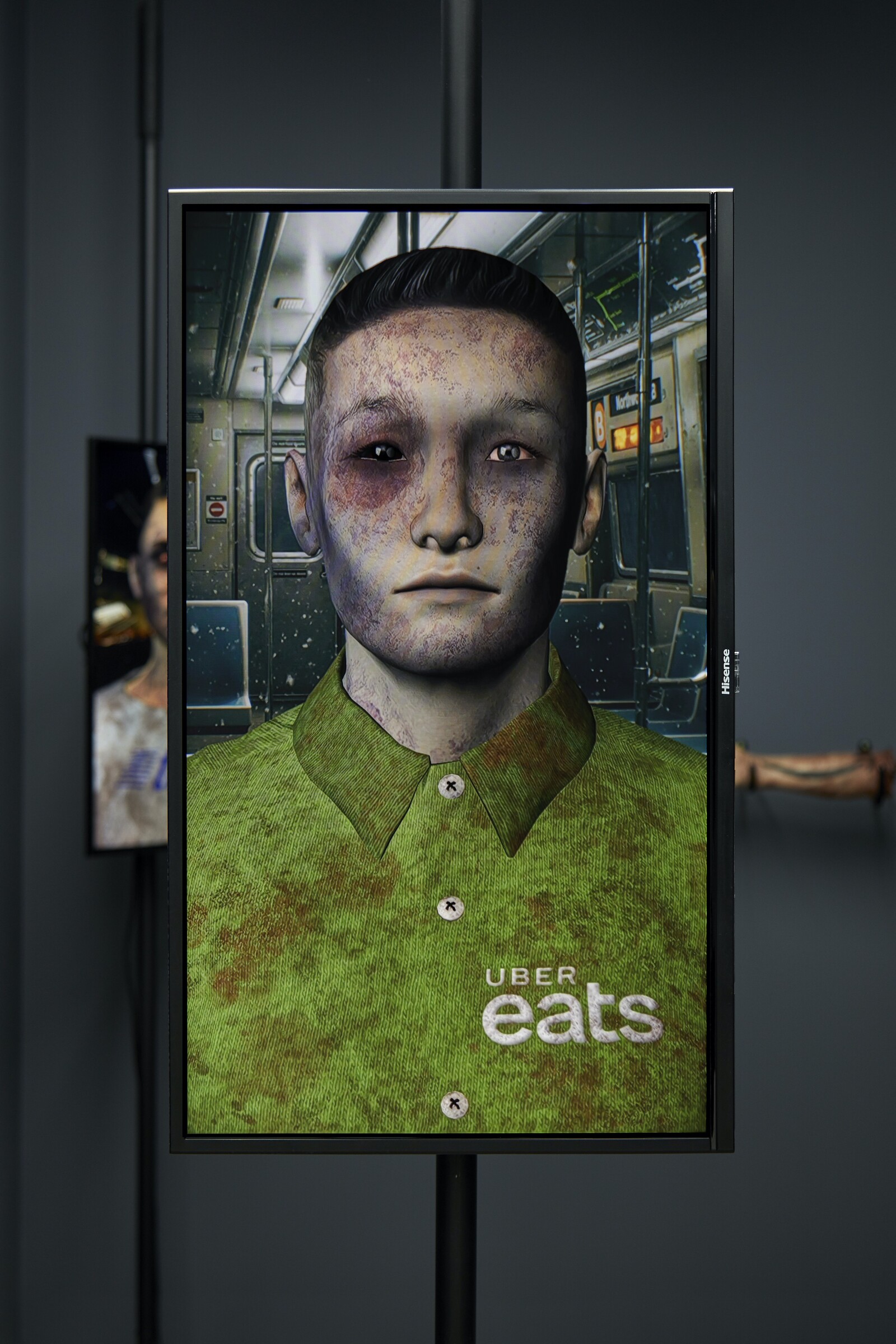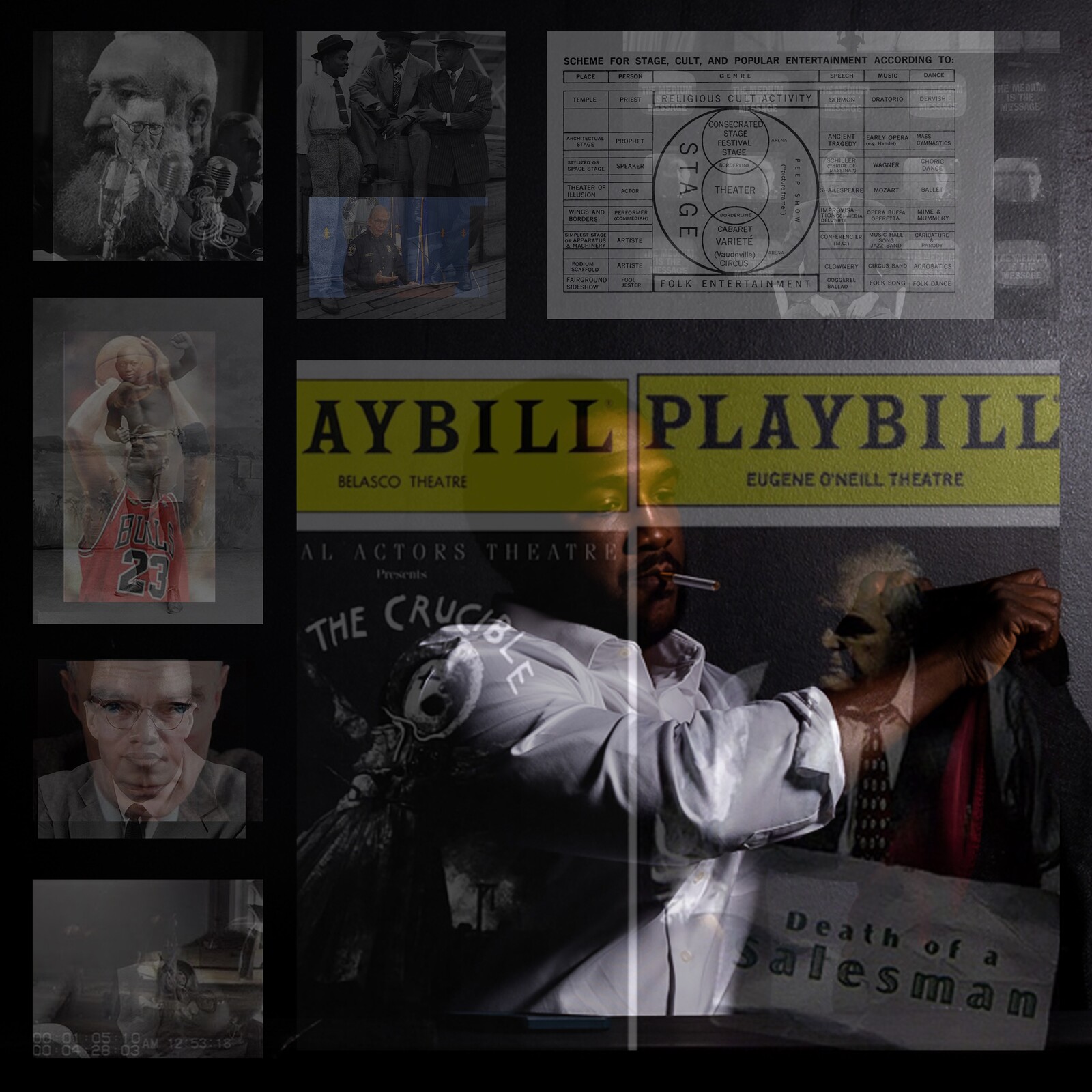In her 1988 lecture, “Unspeakable Things Unspoken: The Afro-American Presence in American Literature,” Toni Morrison explained that the opening sentence of her 1970 novel The Bluest Eye—“Quiet as it’s kept”—was a familiar idiom from her childhood, usually whispered by Black women exchanging gossip, signaling a confidence shared. “The conspiracy is both held and withheld, exposed and sustained,” Morrison tells us.1 By borrowing this expression for the 80th edition of the Whitney Biennial, curators David Breslin and Adrienne Edwards promise the intimacy of knowledge bestowed, an exploration of the tantalizing space between hidden and revealed, a quiet reflection on whispered truths.
Unfortunately, the possibilities of this title are not fully explored; the curators instead pursue a series of “hunches” which are much less satisfying. The two main floors of the biennial are constructed in opposition to each other, the upper story a dark maze, restricted and confined, while the lower level is an airy relief, open and invigorating. This contrast is intended to reflect what the curatorial statement describes as “the acute polarity of our society,” although it is never clear how the works on each floor speak specifically to these fissures.
A recurring concern through the exhibition is a palpable disillusionment with the human: a number of works address the transformation and mutation of the individual into parallel personas. Low-budget branded zombies act as avatars for Andrew Roberts in La Horda [The horde] (2020), as brown bodies become increasingly disposable essential workers. The artist’s transformation is shaped by his childhood memories, an amalgamation of American entertainment culture and the escalating violence of daily life in Tijuana. Daniel Joseph Martinez’s photographs document his metamorphosis into five fictional characters—Mary Shelley’s monster, Count Dracula, the engineer in the film Prometheus (2012), an alien from The X-Files (1993–2002), and the Drone Host from Westworld (2016–ongoing)—each teetering between the human and non-human. These alien species are starkly framed against a bright yet blurred landscape, at once familiar and estranged.
Several standout works explore theatricality as a form of shapeshifting. In ROY G BIV (2022), Alex Da Corte performs the parts of Marcel Duchamp, his female alter ego Rrose Sélavy, Batman’s The Joker, and one of the figures from Brancusi’s 1916 sculpture The Kiss. Over the course of the hour-long video, Da Corte embraces and rearranges historic sculptures housed in the Philadelphia Museum of Art, the black-and-white documentation of his mournful, uncanny performance gradually becoming saturated with color. The silent film, exhibited in a large cube that too will change color throughout the exhibition, is as intriguing as it is unnerving. In contrast to this lushness, Dave McKenzie turns his attention to the mundane objects in his studio, improvising a series of movement pieces in which he reconsiders his body’s basic relationship to the accessories that populate his space. Kandis Williams brings her background in dramaturgy to a repurposing of Arthur Miller’s 1949 Death of the Salesman in her Death of A (2022). Miller’s story of the crushing disappointments of the American Dream becomes part of a script that includes texts by Saidiya Hartman, Albert Einstein, and Yvonne Rainer, performed by a single actor on two of the four screens. A collage of historical, political, and popular images is projected on the other two. This new narrative captures the violence, psychical and psychological, endured by the Black body.
Williams also participates in the biennial as one of the co-founders of Cassandra Press, the publishing and education platform established in 2016 and committed, like the Trojan princess, to truth-telling in the face of a skeptical audience. Cassandra Press’s lo-fi publications, exhibited on the building’s third floor, tackle misogynoir—a term borrowed from African American scholar Moya Bailey—by foregrounding Black scholarship. A Gathering of the Tribes/Steve Cannon (2022) is a tribute to the late founder of the influential cultural organization, inviting the viewer into Cannon’s living room. From the comfort of the couch we watch conversations with the writer on three television screens, surrounded by his archive.
A sense of nostalgia hangs over a number of the works on the sixth floor that endeavor to record that which is disappearing or reclaim that which has been lost. In three videos, Raven Chacon attempts to capture the sonic resistance of Indigenous American women as they narrate the history of their land through song and the beat of a snare drum. In the accompanying lithograph series, For Zitkála-Šá (2017–20), each musical arrangement is a portrait of an Indigenous woman working in music today. In an adjacent space, Adam Pendleton (whose abstract paintings are also on show) provides a black-and-white video portrait of the civil right activist, Ruby Nell Sales, who was shot at by a segregationist in Alabama in 1965. Her life was saved by Jonathan Daniels, who was killed when he stepped in front of her, taking the bullet in her stead. The film is quiet and circumspect as it centers love in Sales’s story. In Coco Fusco’s twelve-minute video Your Eyes Will Be an Empty Word (2021), the artist is shown circling New York’s Hart Island in a small boat as the poet Pamela Sneed performs a text reflecting on the enormous losses of the past two years. The island, which from a distance appears idyllic, has been used as a public cemetery since 1869, its mass graves until recently dug by prison inmates. The resting place of victims of Covid-19 with no known next of kin, it is the site of immense yet unacknowledged grief and loss: the geographical manifestation of the pandemic.
This biennial is quieter than its controversy-marred pre-pandemic edition—perhaps intentionally so. However, one is left wondering what truths have been exposed by its whispers, and what confidences sustained. It has become par for the course for curators to foreground the events of the last few years in their exhibition statements, underscoring the chasmic shift in our realities. And yet it remains to be seen if and how these acknowledgements will disrupt exhibition practices (beyond strategies of inclusion) or if these whispers are ultimately too faint to be heard beyond the institution.
Toni Morrison, “Unspeakable Things Unspoken: The Afro-American Presence in American Literature,” delivered at The University of Michigan on October 7, 1988, republished in The Tanner Lectures on Human Values https://tannerlectures.utah.edu/_resources/documents/a-to-z/m/morrison90.pdf.







